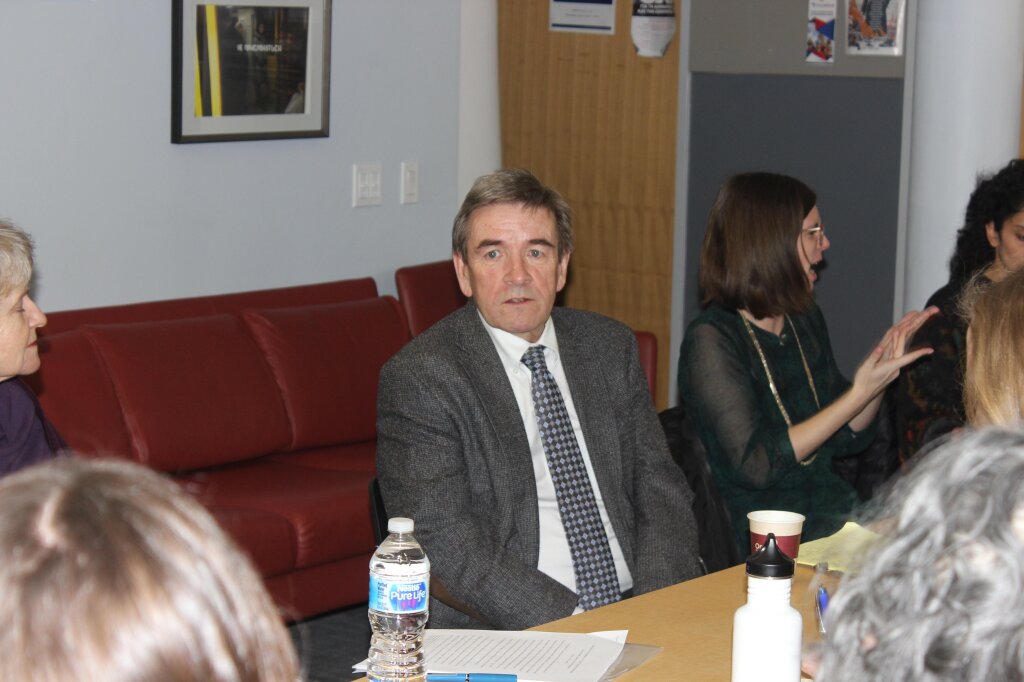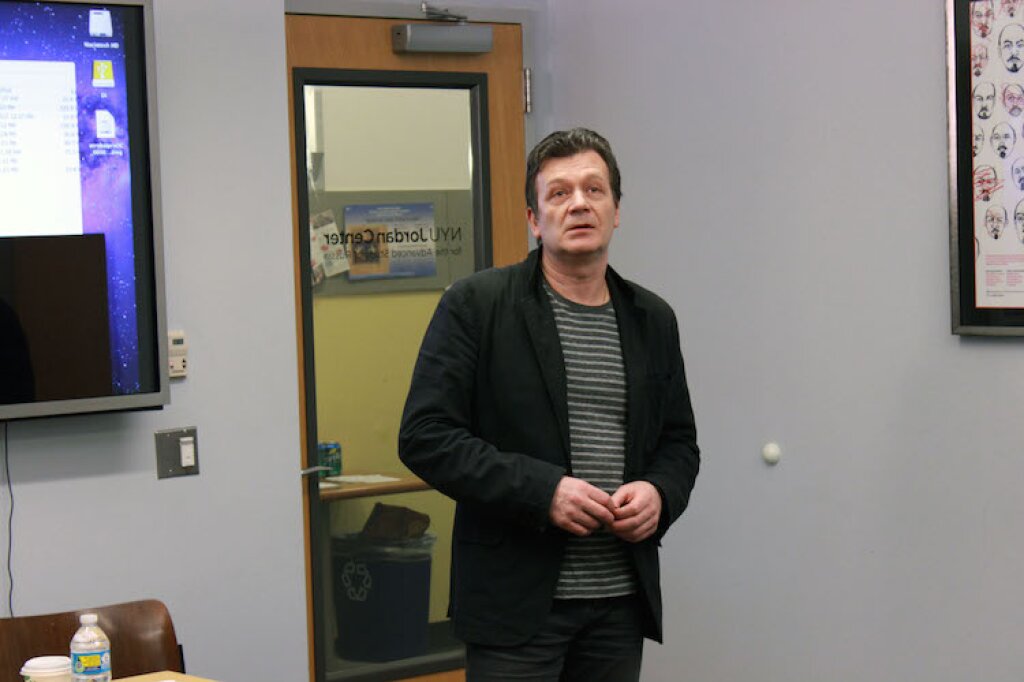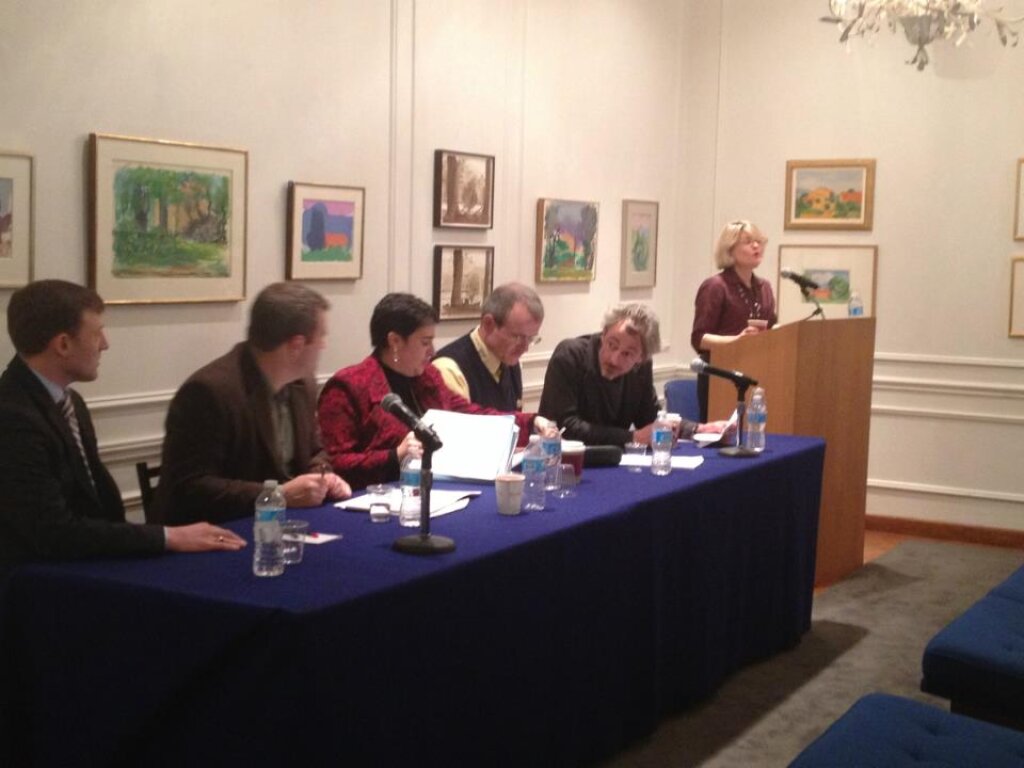At the turn of the twentieth century, a splinter religious sect known as the Dukhobors emigrated from the Russian Empire to Canadian British Columbia and the Canadian prairies. As pacifists and vegetarians who refused to swear oaths of allegiance to any secular authority, the Dukhobors had an uneasy existence under the tsars. In Canada, they hoped to lead lives with a minimum of state interference.
For its part, the Russian government was glad to be rid of several thousand religious dissenters, while Canadian authorities were eager to settle their vast plains with productive homesteaders. Yet, the history of the Canadian Dukhobors was one of further fragmentation, tensions with state officials, and periodic return to their Russian-and later Soviet-homeland.
The Dukhobors' attitude toward the Canadian government was ambivalent, said David McDonald, Alice D. Mortenson/Petrovich Distinguished Chair of Russian history at the University of Wisconsin-Madison. Dukhobor communities in Canada were to some extent reliant on the state, but remained deeply suspicious of its intentions, McDonald said during a colloquium discussion at the Jordan Center on January 26th.
"They sort of want to be in the reach of the government, but they don't want to be within its grasp," McDonald said. "How do you negotiate that?"
Colloquium participants joined McDonald in a wide-ranging discussion of his draft paper, which analyzes the Canadian Dukhobors before and after the 1917 Russian Revolution. Yanni Kotsonis, Professor of History and Russian & Slavic Studies at NYU, moderated the discussion. A key focus for McDonald's research was "how [the Dukhobors] sort of flirted with and then appropriated trappings we would associate with modernity in pursuit of all these new liminal spaces," McDonald said.
Bruce Grant, Professor of Anthropology at New York University, questioned McDonald's framing of the Dukhobors as a "borderland" people, which became a theme throughout the discussion. Did the Dukhobors' identity rely on opposition to other groups? Grant asked. If so, the border in question might be more social than geographic.
Jane Burbank, Professor of History and Russian & Slavic Studies at NYU, noted that though the Dukhobors rejected key elements of modernity, they were not unequivocally anti-state. Several participants mentioned that, in order to protect their communal property in Canada, one group of Dukhobors formed themselves into a corporation-a process that would require extensive interaction with the state.
Burbank pointed out that the Dukhobors offer an opportunity to compare the demands of two very different state regimes: the Russian Empire and Canada. Both states negotiated tensions between individual and group rights, seeking to make individuals within groups legible and therefore susceptible to state demands. Both also mobilized groups as part of state policy-e.g., Canada attempting to populate its prairies, or Russia assuming that all subjects possessed a group identity. However, unlike Russia, private property was the "sine qua non" of Canadian citizenship, Burbank said, so the move to incorporate made sense.
Like other groups with strong, oppositional identities within the Russian Empire, the Dukhobors faced an ever more intrusive state over the course of the nineteenth century, said Yanni Kotsonis. What these groups faced in common was a process of individuation, in which the state sought to register individuals apart from their group identities as prelude to conscription and other demands, Kotsonis said. As pacifists, the Dukhobors saw state individuation as a threat to their beliefs and communities, and Dukhobor immigrants retained their reluctance to become too legible to the state when dealing with Canadian officials.
Jacob Remes, a Professor of History at NYU's Gallatin School, said that the Dukhobors' suspicion of the Canadian government may have been warranted given the history of Canada's indigenous groups. Ottawa sought to assimilate groups like the Métis by imposing systems of private land tenure and education, which became flashpoints for the Dukhobors as well. The Dukhobors recognized that "vital records are the sharp edge of the state coming in," Remes said.
After the Russian Revolution and again after World War II, some Canadian Dukhobors returned to the Soviet Union, where they faced repression. Those that remained in Canada retained a distinct culture, even speaking Russian into the 1950s and 60s. McDonald recalled growing up around Dukhobors and, as a high school senior, speaking Russian with Dukhobor women as they sold bread at a local fair. However, any words that post-dated the Dukhobor migrations at the turn of the century would use an English loan word-for example, "car" rather than the Russian "mashina." Active Russian use disappeared only in the 1970s, McDonald said.
McDonald also mentioned that, in their private correspondence, Dukhobors emulated official Russian state discourse, a "chancellery" language, even years after their move to Canada.



